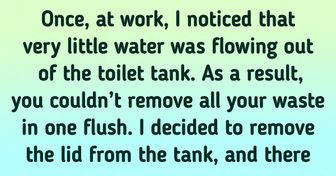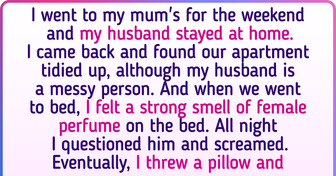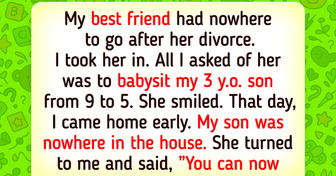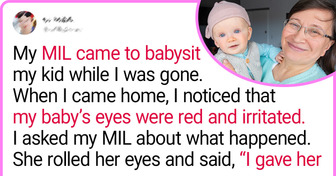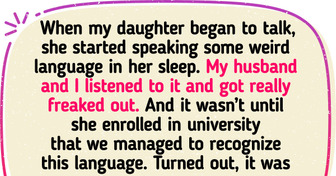20+ Things We’ve All Heard of but Have No Concept of Their Size
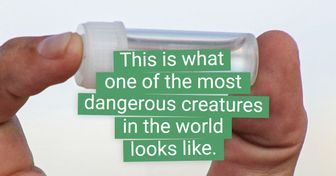
Our everyday actions and habits mostly come from our childhood. Our parents teach us things and we want to pass them to our children because we think that they are good for their health and development. But as it turns out, some of these things may be not as good as we thought.
We at Bright Side have identified the “healthy” habits that only seem to be good, but, in fact, they could do a lot of harm.
Many mothers tell their kids, “Keep your back straight!” while they’re sitting down. But as it turns out, sitting straight in a chair is not the best idea. Studies show that that most comfortable position that we instinctively take when we lean back in the chair and slide down a bit, is the healthiest position. When we sit at this 135° angle, the spine, the muscles, and the tendons don’t take on a lot of tension.
And when a person sits with a straight back for a long time, they can experience intervertebral disc displacement. This is why experts recommend that children sit in a relaxed position with some kind of a support under their lower back.
You have probably heard that when you carry a backpack on your back, it is better than a bag hanging on just one of your shoulders. But as it turns out, it’s not that simple. In order to really make sure that a backpack does no harm to your back, it should have an orthopedic back and be at least 2 inches higher than your waist. Otherwise, carrying a backpack is actually harmful.
Carrying a backpack in the wrong way can be a reason for backaches and the development of scoliosis and kyphosis in school students. So experts don’t recommend putting a lot of extra weight inside the backpack and that we need to be sure that it stays in the right position on the back.
Using antibacterial gels and wipes actually makes the defensive mechanisms of our body and skin weaker, possibly causing a weakened immune system.
Triclosan, which can be found in hand sanitizers, increases the resistance of bacteria to antibiotics and may be a factor in the development of so-called super-bacteria. Besides, these gels not only kill the bad bacteria — they kill all the flora on the hands, so, again, the body’s protection becomes weaker. There have been cases where these products had an instant bad effect on children: they caused skin irritation and poisoning. So, if you can use water and soap, choose to wash your hands instead.
Brushing your teeth after every meal is not a good idea because if you use toothpaste too often, it disrupts the right acid balance in the mouth and destroys the tooth enamel. Saliva is supposed to play a natural role in cleaning the mouth and supporting a balance. The same goes for mouthwashes that have a negative effect on the mucous membranes in the mouth, especially in children.
What you should do, however, is teach children to use floss, which truly helps to keep the mouth clean and doesn’t just freshen the breath.
Milk is very much associated with childhood and it is considered to be a product that restores the lack of calcium in the body. However, studies show the exact opposite of that. Casein, the protein contained in milk, increases the acidity in the stomach and in order to decrease it, the body needs to search for minerals, including calcium. And if you have a lack of calcium, you have a risk of developing osteoporosis. Some studies even point out that casein can be carcinogenic.
By the age of 10-11, children stop developing the ferment that dissolves casein, so teenagers and adults don’t benefit from drinking milk. Nutritionists actually recommend to avoid drinking milk.
Children should be busy. Keeping them busy helps them develop and makes them stronger. But if their schedule is too tight and they have a lot of additional activities aside from school, this could lead to chronic stress. And stress causes hormonal changes that can lead to a weak immune system, digestion problems, and other health issues.
And there is nothing bad about procrastinating, boredom is a state that is necessary for the right development of a child’s psyche, as it allows the brain to “reload.”
It is believed that keeping nails short means keeping the hands clean. However, skin experts say that there is a huge chance of infecting the area under the nail if it is cut too short. Plus, if a nail is too short, the fingertips will grow bigger and the nails may grow into the skin.
So, when cutting your children’s nails, leave a small white edge, keep the lines straight when cutting, and watch to make sure they don’t become ingrown.
We were especially surprised by the experts’ approach to the right spine position when sitting. Have you noticed that some seemingly good habits that actually have a bad influence on you?

